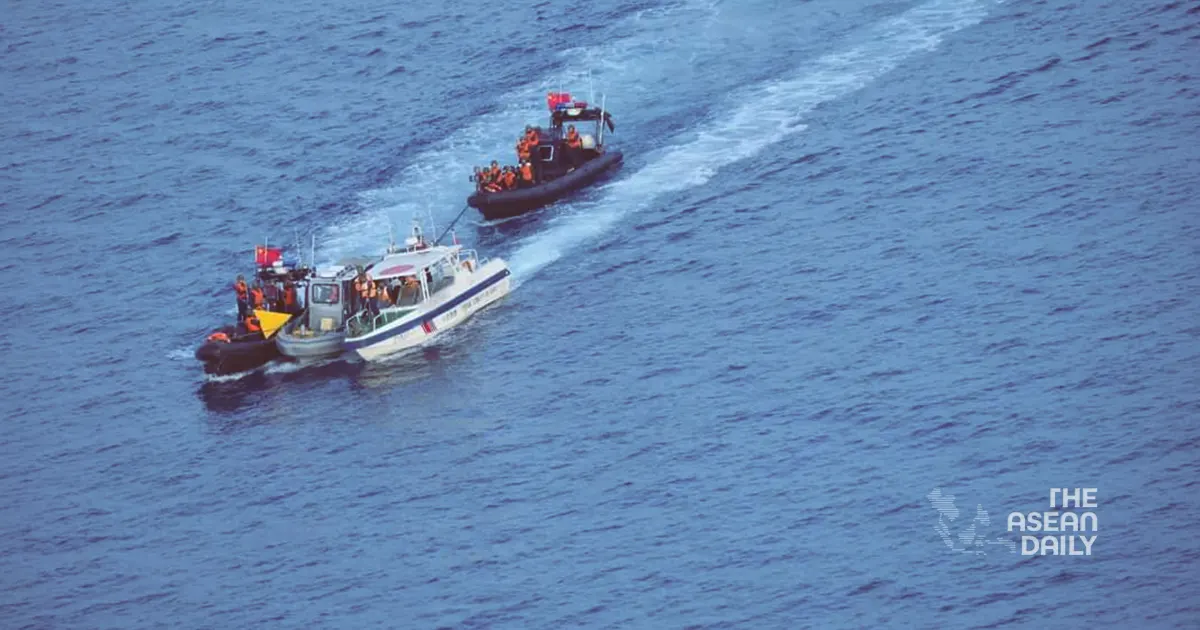1-8-2024 (KUALA LUMPUR) Malaysia’s recent comments on the South China Sea dispute have sparked concerns about the nation’s traditionally neutral foreign policy stance. As Kuala Lumpur prepares to assume the ASEAN chairmanship next year, its apparent alignment with Beijing’s position has left regional observers pondering the implications for the bloc’s unity.
At the 57th ASEAN Foreign Ministers’ Meeting in Laos last week, Malaysian Foreign Minister Mohamad Hasan emphasised the importance of adhering to international and maritime law in the South China Sea. He called for ASEAN countries to settle territorial disputes through negotiations and dialogue, without relying on external assistance.
“It is in the best interest of ASEAN and the Southeast Asian region to resolve issues internally through negotiations and dialogue,” Hasan stated. He cautioned that external influence could lead to “uncertainty” in the region.
Although no specific country was named, these remarks are widely interpreted as a veiled reference to the Philippines, which has recently bolstered its military and security cooperation with nations such as the United States, Japan, and Australia. This increased collaboration aims to counter Beijing’s assertive actions in the disputed waters.
The South China Sea has been a flashpoint of tension, particularly between China and the Philippines. Recent months have seen escalating confrontations, including a high-speed ramming incident by a Chinese Coast Guard ship on 17 June, which resulted in serious injury to a Filipino sailor.

Sharon Seah, coordinator of the ASEAN Studies Centre at the ISEAS-Yusof Ishak Institute in Singapore, noted the Philippines’ frustration during the drafting of the ministerial meeting’s joint communique. Manila’s attempts to highlight the ramming incident were rebuffed by ASEAN, particularly Cambodia and Laos, the current chair.
“Manila would undoubtedly appreciate more support from fellow claimant states, if not from ASEAN as a whole, in condemning actions that jeopardise personal safety,” Seah remarked.
The South China Sea dispute involves multiple ASEAN members, including Vietnam, Malaysia, and Brunei, alongside the Philippines.
Concerns are mounting that Malaysia’s softer stance on the South China Sea, which contrasts sharply with the Philippines’ position, may become more pronounced during its ASEAN chairmanship in 2025. Seah pointed out that Malaysia had previously refrained from commenting on South China Sea issues due to its “strategic economic calculus”.
However, recent months have seen Kuala Lumpur supporting Chinese initiatives and applying to join China-led regional groupings. “This has brought into question whether Malaysia’s neutral foreign policy stance is evolving under the Anwar government,” Seah observed.

China has been Malaysia’s largest trading partner since 2009, with total trade valued at US$98.9 billion in 2023. The recent visit of Chinese Premier Li Qiang to Malaysia in June resulted in several bilateral agreements, including a new five-year economic and trade cooperation deal.
Malaysia has also been an early supporter of China’s various global initiatives, including the Belt and Road Initiative. On Sunday, Malaysia submitted an application to join BRICS, a move welcomed by the Chinese Foreign Ministry.
Izzah Khairina Ibrahim, an analyst at the Institute of Strategic and International Studies (ISIS) in Malaysia, suggested that while Hasan’s comments might appear aligned with China’s position, they are consistent with the Malaysian government’s official stance. Malaysia maintains that South China Sea issues must be resolved peacefully through existing platforms and diplomatic channels.
Regarding the potential impact on ASEAN unity, Ibrahim does not foresee “immediate destabilising effects” but warns that the issue “retains the potential to be another factor in fracturing the institution if left unaddressed”.




